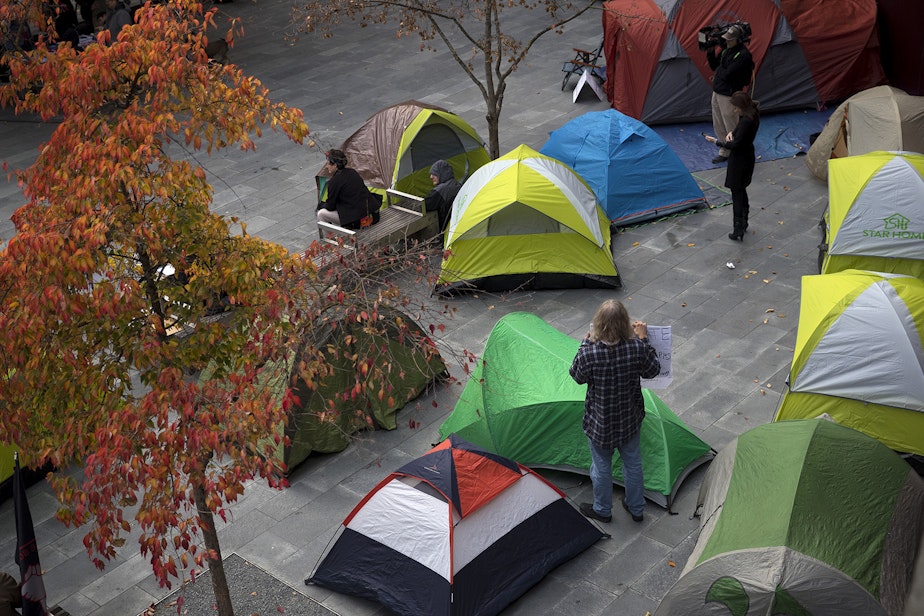Business 'head tax' back on the table in Seattle

Seattle's City Council wants to bring back its "head tax" proposal — and soon. The idea is to tax the city's largest businesses based on their number of employees.
The council already voted down a head tax (also called an employee hours tax) earlier this month.
Homeless advocates in Seattle let the City Council know they're disappointed. Travis Thompson with the Housing For All Coalition testified about it at this week's council meeting.
Thompson: "We want to put you on notice that we're going to continue to be in these chambers, we are going to be at the table every step until the new employee head tax is passed. We'll see you soon."
Monday, the Seattle City Council passed a resolution to restart the proposal. Councilmember Lorena González is one of the sponsors and said the city will form a task force on the issue by December 11. The council will select the members and co-chairs, with input from the mayor.
Sponsored
González’s ultimate goal is for the council to adopt an employee hours tax by the end of March. If approved, the tax on large businesses would go into effect in January 2019.
González: "This will put us on a clearer path to revenue sources to be able to truly get serious about the civil emergency that faces us, as it relates to our homeless neighbors."
The resolution states the “City and the non-profit sector cannot address the twin crises of homelessness and lack of affordable housing on their own" and that all sectors of society must work together to address and resolve the civil emergency related to homelessness.
The task force will be responsible for:
- exploring potential new "progressive" revenue sources such as an employee hours tax,
- recommending a tax rate,
- and identifying investments “that would assist people who are homeless or at high risk of becoming homeless in obtaining and retaining stable housing.”
Sponsored
A head tax could raise between $25 and $75 million per year, according to city estimates. Seattle officials have discussed using that possible revenue to fund homeless services and permanent housing.
Critics say the city already has enough money for homeless programs and that businesses currently pay their fair share of taxes.

